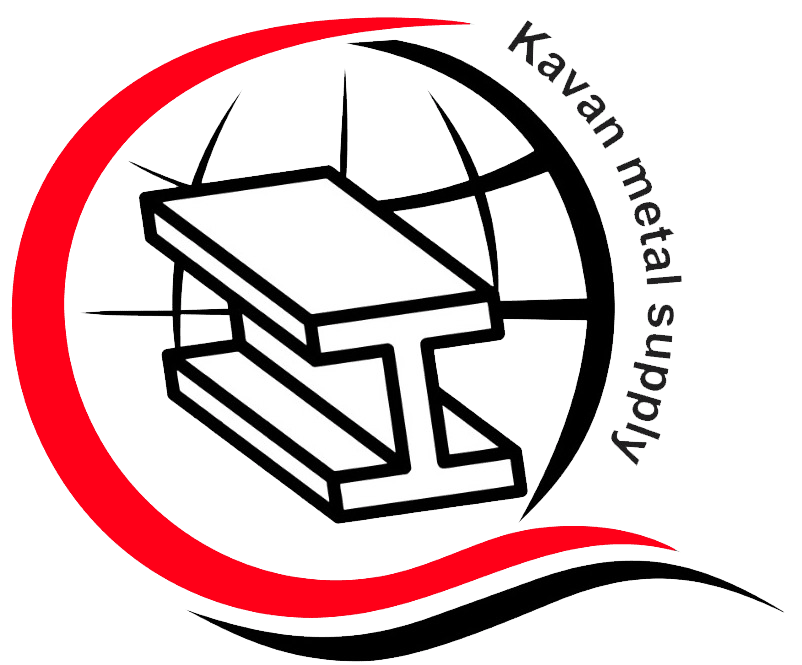The automotive industry is one of the world’s vital and productive manufacturing sectors. Rapid advancements and modern technologies have turned the production of electric vehicles into a pioneering and innovative milestone.
The increasing focus on environmental preservation, reducing fossil fuel consumption, and enhancing transportation efficiency have all driven the swift development of electric vehicles, which are considered the future of personal transportation.
In this context, non-ferrous metals play a crucial role in the structure and design of electric vehicles. With unique characteristics such as corrosion resistance, lightness, mechanical strength, and aesthetic appeal, non-ferrous metals significantly contribute to the production of electric cars. In this article, we will examine the key role of non-ferrous metals in the automotive industry.
Special Sale on Kavan Products for a Limited Time. For price inquiries, please contact +98-21-22378001, +989125123326
The Application of Non-Ferrous Metals in the Automotive Industry
Non-ferrous metals have extensive applications in the automotive industry and play an important role in car production. These metals are commonly used as aesthetic and protective coatings on car components.
Here are some key applications of non-ferrous metals in the automotive industry:
Exterior Coatings (Colored Coatings): One of the primary uses of non-ferrous metals is in the exterior painting of vehicles. These coatings not only enhance the beauty and style of the car but also protect underlying parts from corrosion, rust, and environmental factors.
Interior Coatings: Non-ferrous metals are also widely used in the interior of vehicles, such as for surface coatings, door handles, and other internal components.
Anti-Rust and Anti-Corrosion Coatings: Non-ferrous metals are used to coat parts exposed to corrosion and rust, such as the car’s chassis, pipes, and foundational components. These coatings help prolong the lifespan of these parts.
Protective Coatings: Non-ferrous metals are used to create protective layers on various parts and surfaces of cars, including water-resistant and dust-proof coatings, and protection against weather effects.
Decorative Elements: Non-ferrous metals are employed for decorative details on vehicles, including stylish coatings on car forms, trims, and logos.
Color Restoration Systems: Non-ferrous metals are also used in vehicle color restoration systems to repair rust, scratches, and paint damage.
For consultation, please contact our experts.
Advantages of Using Non-Ferrous Metals in the Automotive Industry
Some of the primary advantages of using non-ferrous metals in this industry are:
Aesthetic Appeal: Non-ferrous metals add beauty and allure to vehicles. Painting with these metals allows for a wide variety of designs and styles, enhancing the visual appeal of cars.
Corrosion and Rust Resistance: Many non-ferrous metals are resistant to rust and corrosion, extending the lifespan and durability of car components.
Mechanical Strength: Non-ferrous metals often have high mechanical strength, allowing protective and structural parts made from them to withstand impact, pressure, and stress.
Weight Reduction: Many non-ferrous metals are lighter than traditional metals like steel. This lower weight reduces the overall weight of the vehicle, leading to better fuel efficiency and reduced environmental impact, particularly in electric vehicles.
Environmental Compatibility: In efforts to minimize negative environmental impacts and create more sustainable vehicles, non-ferrous metals are typically regarded as recyclable and eco-friendly materials.
Color Diversity: Non-ferrous metals offer a broad range of color choices and design variations, enabling car manufacturers to cater to diverse market preferences.
Ease of Maintenance and Repair: Non-ferrous metals are generally known for their ease of maintenance and repair, simplifying the restoration of rust or paint scratches.
Using non-ferrous metals in the automotive industry enhances vehicle performance, appearance, and durability while also contributing to the development of Eco-friendly and sustainable vehicles.
For more information: Non-Ferrous Metals in the Aerospace Industry.
Disadvantages of Using Non-Ferrous Metals in the Automotive Industry
- High Costs: The production and use of non-ferrous metals are typically more expensive. This includes costs associated with painting, protective coatings, and specialized processes. These higher expenses can negatively impact the production and final price of vehicles.
- Complex Manufacturing: The painting and coating processes for non-ferrous metals require precise and complex procedures, which can be time-consuming and increase the complexity of car manufacturing.
- Environmental Limitations: The production and use of non-ferrous metals may lead to environmental issues, such as air and water pollution due to the use of chemical compounds in the painting process.
- Limited Recycling: The recycling of non-ferrous metals is usually more challenging and limited compared to uncoated metals. This can lead to increased consumption of raw materials and resources.
- Repair Time: Repairing and restoring the paint on non-ferrous metals generally takes more time, potentially resulting in extra time and costs for car owners.
- Susceptibility to Scratches and Impacts: Non-ferrous metal parts are more sensitive to scratches and impacts, requiring additional maintenance and repair efforts.
- Drying and Air Purification: Processes related to painting non-ferrous metals often require air purification and faster drying methods, which can pose challenges during production and in the working environment.
However, advancements in automotive and painting technologies may help mitigate some of these disadvantages.
None-ferrous metals play s crucial role in the automotive industry. From exterior and interior coatings to productive and decorative finishes, these metals contribute to the production and enhancement of vehicles.
As the focus on aesthetics, durability, and sustainability grows in the automotive industry, non-ferrous metals have come essential tools for attracting customers and creating high-quality, modern cares. Simply put, non-ferrous metals and beauty, protection, and enhanced performance to vehicles, playing an indispensable role in the evolution of this industry.
Kavan Metal Supply Company consists of commercial and sales units, finance and accounting, research and development, social media, as well as legal and administrative departments, and is capable of providing comprehensive and up-to-date services to government organizations, private companies, and individuals.
With a team of experienced professionals and nearly two decades of experience backed by reputable managers in the field of steel product sales, Kavan Metal Supply has achieved rapid and continuous growth in the field of basic steel export products. Contact our experts for consultation.
